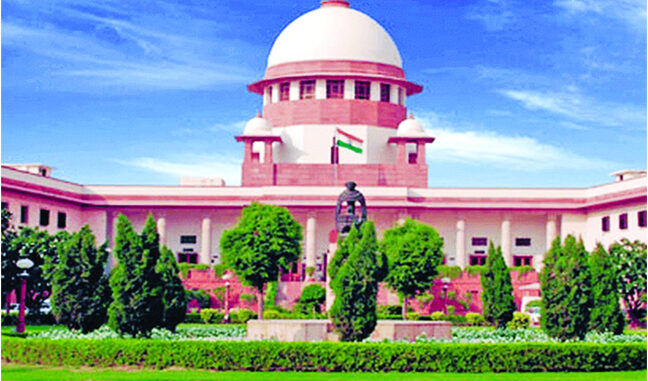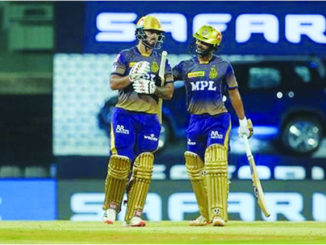
New Delhi (TIP)- In a crucial judgment endorsing the powers of the Enforcement Directorate, the Supreme Court rejected almost all objections to its powers to probe, arrest and seize properties as proceeds of money laundering. A 3-judge Bench headed by Justice A M Khanwilkar, two days ahead of his retirement, upheld all the stringent provisions of the Prevention of Money Laundering Act (PMLA). The Bench, which also comprised Justices Dinesh Maheshwari and C T Ravikumar, held that Section 19 on ED’s power to arrest under challenge, does not suffer from the “vice of arbitrariness” and attachment of properties of those involved in the money laundering under Section 5 is also constitutionally valid. The Bench said money laundering affects social and economic fabric of the nation and also tends to promote other heinous offences such as terrorism, offences related to the NDPS Act (Narcotic Drugs and Psychotropic Substances Act). Petitioners had argued that unchecked power to arrest the accused without informing them of grounds of arrest or evidence is unconstitutional. They further said that the recording of incriminating statements of an accused during questioning under the threat of being fined for withholding information amounts to compulsion.
Petitioners had argued that unchecked power to arrest the accused without informing them of grounds of arrest or evidence is unconstitutional. The supply of ECIR (Enforcement Case Information Report) copy in every case is not mandatory as it is an internal document, the top court said, rejecting the petitioners’ challenge that it is similar to an FIR and the accused is entitled to a copy of the ECIR. It is enough if Enforcement Directorate, at the time of arrest, discloses grounds for such arrest, it said.
Another major challenge, that filing PMLA charges in cases that occurred before 2002 (when PMLA came into existence) is unconstitutional, was also turned down. The Centre justified it saying that money laundering is a continuing offence, and not a single act but a chain. Proceeds of crime could have been generated before 2002 but could have still been in possession or in use by the accused post-2002. The petitioners included politician Karti Chidambaram and former Jammu and Kashmir Chief Minister Mehbooba Mufti, among others.
The centre justified the constitutional validity of the provisions of PMLA. It defended the amendments to PMLA, saying money laundering poses threat not only to financial systems but to the integrity and sovereignty of nations, since money laundering is conducted not just by corrupt businessmen like Vijay Mallya or Nirav Modi but also by terror groups. The top court agreed with the Centre’s contention.
ED powers will have ‘far-reaching implications’ for our democracy: Congress
The Congress on July 27 said that the Supreme Court’s judgement on the Enforcement Directorate’s powers will have “far-reaching implications” for the country’s democracy.
On Wednesday, Congress General Secretary Jairam Ramesh said in a statement that the Supreme Court ruling will have consequences, especially when “governments are anchored in political vendetta”.
“However, there is one specific aspect of the judgement I would like to address immediately,” the statement added. “I had moved the Supreme Court on the blatant misuse of the Money Bill route by the Modi Government, on the amendments made to the Prevention of Money Laundering Act, 2002. The Supreme Court had issued notice on my petition on July 2, 2019. This question remains unresolved in today’s judgement.” Ramesh was referring to a 2019 amendment in which provisions of the Act were changed to include possession of crime proceeds within the definition of money laundering. On Wednesday, the petitioners argued that concealing the “proceeds of crime” by itself should not qualify as money laundering. They submitted that the amendments were brought through Money Bills that need to be passed only in the Lok Sabha and not the Rajya Sabha.
Money Bills concern with subjects dealing with government revenue and expenditure. But, the Supreme Court said the method of introduction of the amendments through a Money Bill would be separately examined by a larger bench. Ramesh, however, noted that the Supreme Court has agreed that it is “conscious of the fact that if that ground of challenge is to be accepted, it may go to the root of the matter and amendments effected vide Finance Act would become unconstitutional or ineffective”.




Be the first to comment